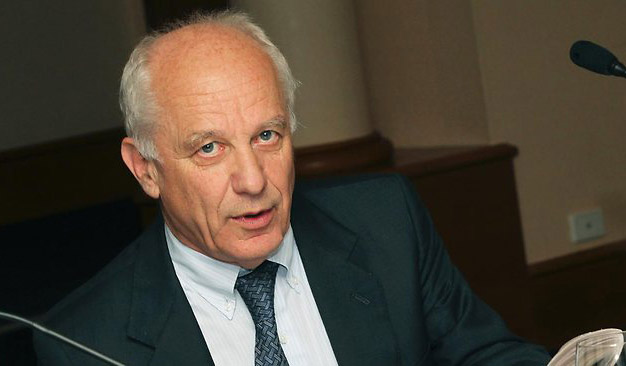Australia/Israel Review
Scribblings: The Media, the Disease and the Cure
Mar 27, 2012 | Tzvi Fleischer

Tzvi Fleischer
The Finkelstein Inquiry into the Australian media has provoked a great deal of comment in the Australian media, most of it critical. And I share the view of the majority of commentators that the major proposal put forward by Finkelstein – for a government-funded body empowered to make legally enforceable and unappealable rulings on any alleged failure to meet agreed standards by any media outlet (including small blogs) – is, at the least, problematic. Any cure worse than the disease would be a mistake.
However, I would like to point out that there is actually a disease – from both considerable anecdotal evidence and AIJAC’s experience, current media complaints procedures do not work very well. For instance, the Finkelstein report discusses the Australian Communications and Media Authority (ACMA) in Sections 6.59 and 6.60, criticising it for acting too slowly, not being user-friendly, having ill-defined procedures, and lacking the power to enforce its findings. All of these criticisms appear accurate – furthermore, ACMA investigations seem to be both arbitrary and legalistic with respect to its standards of evidence, and ACMA often seem to lack both necessary expertise, and any procedure for obtaining outside expert assistance, for handling many of the issues it is supposed to deal with.
Finkelstein’s report is also critical of the Australian Press Council (APC). Again, AIJAC agrees this body is not terribly useful. Staffed by journalists, it tends to interpret the standards it is supposed to enforce in ways that give journalists the broadest possible discretion. Despite the guidelines suggesting it can enforce other forms of fairness, it will really only make rulings against blatant, and incontrovertible factual errors, or failures to provide adequate right of reply. Moreover, the APC tends to enforce rules about standing to complain – meaning only the person about whom a factual error is made can complain. An error in an international news story, not directly affecting any individual in Australia, is therefore usually immune from APC scrutiny.
Further, Finkelstein’s claim that the ABC complaints procedures are better than most of these other bodies, appears to be ill-founded. Like the APC, the ABC Audience and Consumer Affairs (ACA) division effectively re-interprets the ABC editorial guidelines as permissively as possible, because that is what ABC employees prefer. Thus, it upholds only around 1% of all complaints it gets and less than 10% of those it chooses to investigate, the process is long and slow, and even if a complaint is upheld, this generally has no practical result. The standard of evidence for employees for dismissing complaints over factual errors is simply a single source which – kind of, sort of – supports their assertion if you squint at it. By contrast, complainants must provide large amounts of unimpeachable, undisputed evidence and prove their case beyond a reasonable doubt. And even if you prove a report was factually wrong, ACA can still dismiss a complaint if the ABC employee says they were reporting based on the best information available at the time – even if the ABC never broadcast more up to date and correct information later.
We also had the absurdity a few years ago that the ACA ruled it was perfectly fine for ABC employees to make blatantly factually untrue assertions in any case where the assertion was a part of a question in an interview, even if the assertion was not phrased as a question or hypothetical.
And that’s not even talking about SBS’s Complaints Committee, which consists of SBS’s senior managers getting to adjudicate on their own behaviour and that of their close colleagues, as we witnessed recently in the case of the controversy over “The Promise”.
In other words, there is good reason to conclude that few media complaints bodies in Australia are of much use in terms of either keeping the media honest or correcting the inevitable errors when they occur. The Finkelstein Inquiry recommendations may not be the answer, but that doesn’t mean Australia’s media complaints procedures couldn’t and shouldn’t be significantly improved.
School days in Gaza
Here’s a little known but telling fact. As was widely reported, during the recent Gaza mini-war on March 9-12, tens of thousands of Israeli kids in areas under rocket attack had to be kept home, as most schools were closed for safety reasons (and wisely so, as a rocket did hit an empty schoolyard in Beersheva).
But what happened to Gaza’s kids? According to reports from the Israeli newspaper Haaretz, schools were open in Gaza and kids mostly went to school as normal throughout the fighting.
It’s worth considering what that signifies. Despite all the rhetoric about the terrible, indiscriminate Israeli attacks on Gaza, supposedly mowing down civilians left and right, both the Hamas authorities there and Gaza parents apparently expected their children would be safe from such attacks in the schools. Whatever they say, they acted as if they fully expected Israel’s retaliation would be very careful to avoid deliberate or accidental damage to school buildings, or injury to Gaza children. This is in sharp contrast to the rockets fired at Israel, where it was very clear the rocket attacks were indiscriminate, and schools were clearly at risk.
Tags: Australasia






